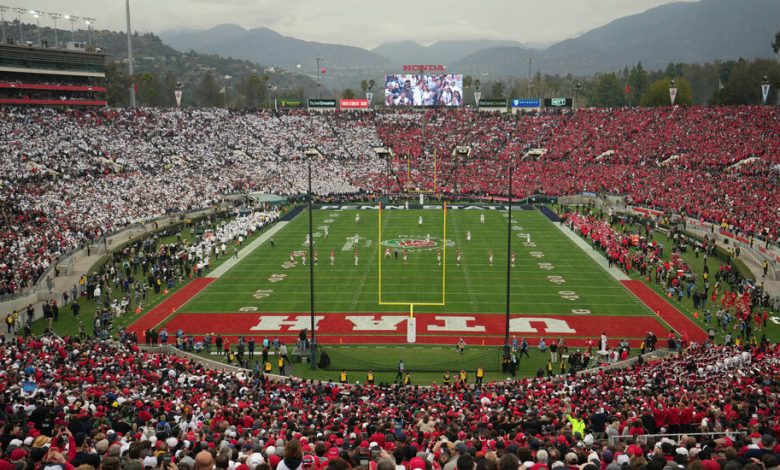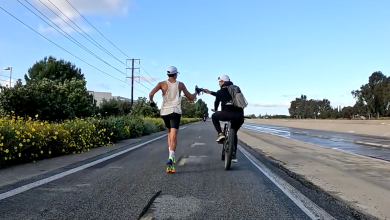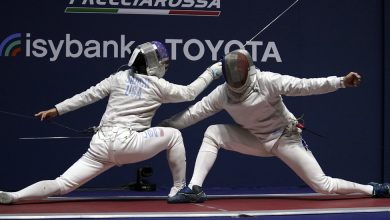Penn State Beats Utah, as the Rose Bowl Marks the End of an Era

PASADENA, Calif. — For months, beginning with workouts in the dog days of summer, continuing through the first chill of autumn and into the fraught moments that November football always brings, college football teams with any ambition look toward a distant goal: the playoff.
On Monday, though, a compelling counterpoint to that singular focus was laid out — on the rich, green grass of a sold-out Rose Bowl.
Less than 48 hours after Michigan and Ohio State endured gut-wrenching playoff defeats — ones that are sure to haunt them not just for years, but for lifetimes — Penn State, the third-best team in the Big Ten Conference, found a much more savory conclusion to its season.
The Nittany Lions, their national-title hopes extinguished by Halloween with losses to the Buckeyes and the Wolverines, walked off the field jubilant, pulling away from Utah in the second half for a 35-21 victory.
The enthusiasm of Utah fans, who made up a majority of the crowd of 94,173, showed no sign of abating on their second consecutive trip to the Rose Bowl until rain began to fall late in the fourth quarter. But as they began to clear out in the final minutes, Penn State fans, who packed the northwest corner of the stadium, stood and roared when Sean Clifford, the senior quarterback, was removed from the game.
The rain did little to dampen the enthusiasm of the Nittany Lions, who milled around and celebrated at midfield as their Blue Band merrily played. The scene was reminiscent of a year ago, when Ohio State won a thriller over the Utes on a last-second field goal by Noah Ruggles, whose last-second attempt against Georgia on Saturday night was not as true.
Monday’s game, though absent the thrills that often find their way to the Rose Bowl, represented the end of an era — or, perhaps more precisely, another step in the game’s evolution.
The recent agreement to expand the College Football Playoff, to 12 teams from four, beginning with the 2024 season, threatened not just the Rose Bowl’s pre-eminent status among bowl games but also its very relevance.
Ultimately, the game’s organizers surrendered its marquee spot on college football’s television calendar — a 2 p.m. Pacific kickoff on New Year’s Day (or the next day when the holiday lands on a Sunday as it did this year), which gave the game a national audience all to itself.
And they relinquished, almost for good, what since World War II has been at the core of the Rose Bowl’s existence — an annual matchup between the Big Ten and the Pac-12 Conferences (and their forerunners), an alliance forged over a commitment to desegregation.
That arrangement first ceded ground to the growing push for a playoff in 2002 when it hosted Miami and Nebraska, who kicked off under the lights on Jan. 3 — the first time the game had not been played on New Year’s Day or the day after.
That was the first of eight times since that the Rose Bowl has featured at least one team from outside the Pac-12 and Big Ten, mostly allowing for its turn every three years as a host for a College Football Playoff semifinal. The College Football Playoff organizers flexed their muscle in 2020, moving the 2021 game between Notre Dame and Alabama to Arlington, Texas, because the Rose Bowl could not accommodate fans because of the local pandemic restrictions against mass gatherings.
Still, it is hardly hyperbole to suggest that no place can match the Rose Bowl for its pageantry, history and majestic setting.
It was an unseasonably cool afternoon — 54 degrees at kickoff and a cloud cover that obscured the setting sun from painting the San Gabriel Mountains orange, pink and red. But Penn State’s white with navy blue trim and Utah’s cherry red nevertheless brought a rich color palette to the old bowl.
A more subtle sign of the Rose Bowl’s slippage in stature speaks more broadly to a phenomenon across college football — the absence of N.F.L. prospects who choose to not play for fear of an injury. That robbed Monday’s game of several players, including its most tantalizing matchup — Penn State receiver Parker Washington against Utah cornerback Clark Phillips III.
The game unfolded much as might have been expected between two teams whose defining trait this season has been their physical play — to the point at which Penn State, after looking at film, concluded that the Utes, who beat up Southern California in the conference championship game, would fit nicely in the Big Ten.
“We’re not completely old school because we do have a good passing attack,” Utah Coach Kyle Whittingham told reporters on Saturday. “But we’re committed to the run, the play-action game off the run, and that’s something that is not real prevalent, particularly in the Pac-12.”
That physical toll was particularly acute for Utah quarterback Cameron Rising, who for the second consecutive year was knocked out of the Rose Bowl in the second half, this time with a leg injury. It came halfway through the third quarter, shortly after the freshman running back Nicholas Singleton bolted 87 yards for a touchdown to put the Nittany Lions ahead, 21-14.
Rising, who had his helmet knocked off by a vicious blow in the Pac-12 title game, had to be helped off the field after being hit by a pair of freshmen defensive backs — Kevin Winston and Zakee Wheatley. He did not return.
In his place stepped a comforting understudy.
A year ago, Bryson Barnes, a freshman walk-on who grew up on a pig farm in speck-on-a-map Milford, Utah, threw a game-tying touchdown pass for the Utes, only to have his moment dampened when Ohio State answered with a game-winning field goal.
This season there would not be such a rousing performance.
Barnes moved Utah into Penn State territory, but the pass he floated down the sideline to Devaughn Vele hung long enough for safety Ji’Ayir Brown to intercept it.
After trading punts, Penn State put the Utes at a distance when Clifford lofted a deep pass that KeAndre Lambert-Smith hauled in at midfield and outraced the secondary for an 88-yard score.
All that was left was for the rain — and white confetti — to fall.




